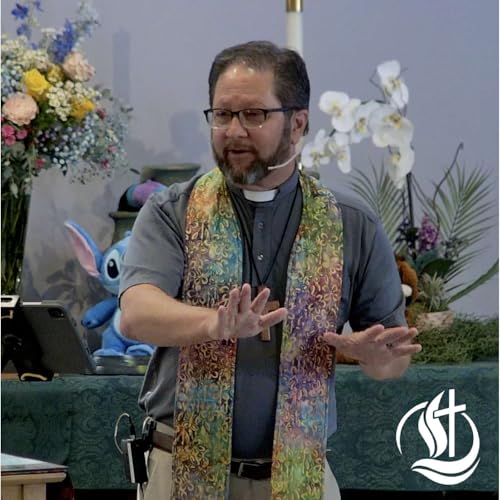
What Lilo and Stitch Teaches Us About Unconditional Love and Faith
No se pudo agregar al carrito
Add to Cart failed.
Error al Agregar a Lista de Deseos.
Error al eliminar de la lista de deseos.
Error al añadir a tu biblioteca
Error al seguir el podcast
Error al dejar de seguir el podcast
-
Narrado por:
-
De:
Send us a text
Ever set out on a journey only to realize you're woefully unprepared? Like hiking up steep trails to Griffith Observatory in completely wrong footwear? These moments of physical discomfort mirror something deeper about our spiritual lives—the persistent "thorns" we can't seem to overcome no matter how hard we try.
The Apostle Paul knew this frustration intimately. His mysterious "thorn in the flesh" became the focal point of repeated prayers for relief. Three times he begged God to remove this weakness, whatever it was. But instead of healing, Paul received something far more profound: "My grace is sufficient for you." With these words, everything shifted. What had been merely an annoying limitation became a powerful reminder of divine love. The very weakness that frustrated Paul transformed into a blessing—a constant reminder that he was fully accepted despite his imperfections.
This transformative power of grace finds an unexpected parallel in the animated world of Lilo & Stitch. Much like Paul's journey, Stitch begins as a creature defined by destruction and deemed irredeemable. But through Lilo's persistent acceptance and the Hawaiian concept of "ohana"—that family means no one gets left behind or forgotten—Stitch experiences profound transformation. Not through demands or expectations, but through unconditional love that remained steadfast even when he failed spectacularly. The parallels to spiritual grace are striking; both reveal how acceptance creates the space where genuine change becomes possible.
Whether you're struggling with your own personal thorns or seeking to understand how grace operates in real life, this exploration offers hope that our limitations need not be overcome to be blessed. They might themselves become blessings when they remind us of our shared humanity and need for love. Next time you find yourself with the wrong shoes on a difficult path, remember: sometimes our greatest growth happens not despite our weaknesses, but because of them. Who in your life might need to experience this kind of transformative, unconditional love today?
Support the show



